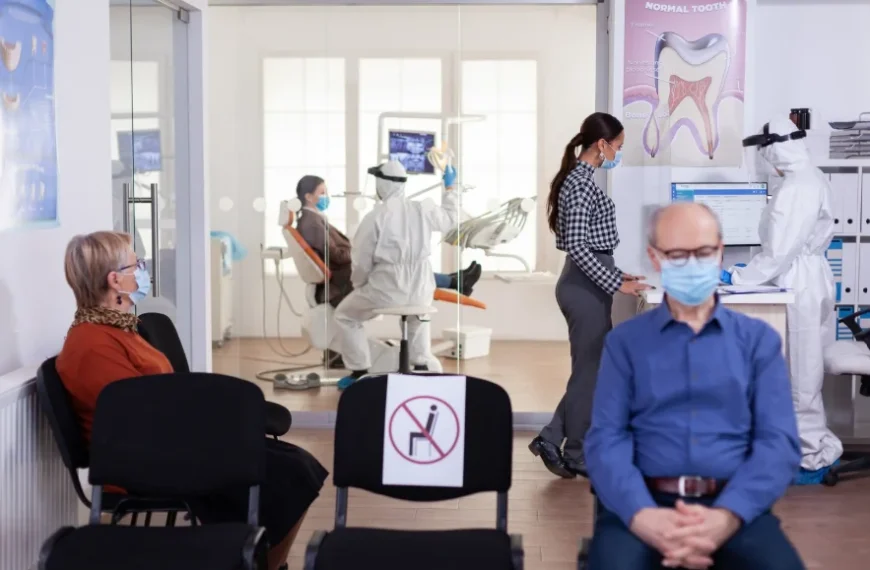Complying with health and safety standards isn’t just a legal requirement—it’s key to building a successful, sustainable business. These rules protect employees, customers, and the public from workplace risks. Failing to comply can lead to fines, legal issues, and damage to your reputation. For businesses, especially in high-risk industries, working with industrial hygiene consultants is a smart way to ensure compliance and maintain a safe work environment.
Why Compliance with Health Standards Matters
Health standards ensure safer workplaces and reduce the risk of injuries and illness. They cover everything from hazardous materials to ergonomic practices and air quality. Meeting these standards helps businesses:
- Reduce workplace accidents
- Improve employee well-being
- Avoid legal penalties
- Maintain operational continuity
- Strengthen company credibility
Without a clear plan for managing workplace hazards, it’s easy to miss regulatory requirements. Even small oversights can lead to serious consequences during inspections or audits.
Common Challenges Businesses Face
Navigating health standards can be tough, especially for growing companies or those in technical fields. Common issues include:
- Outdated policies or procedures
- Lack of employee training
- Poor indoor air quality or chemical exposure risks
- Ineffective use of personal protective equipment (PPE)
- Incomplete documentation and record-keeping
- Failure to monitor environmental conditions
Even well-meaning companies can struggle with compliance without internal expertise. That’s where industrial hygiene consulting services help.
What Industrial Hygiene Consulting Services Offer
Industrial hygiene consulting helps identify and manage workplace health hazards. Experts ensure businesses create safer environments and comply with industry standards.
Services may include:
- Hazard Assessments: Evaluating job tasks and environments to identify exposure risks from chemicals, dust, noise, and other factors.
- Air and Noise Monitoring: Measuring levels of airborne contaminants or excessive noise and comparing them to acceptable thresholds.
- Exposure Control Planning: Recommending methods such as ventilation improvements, PPE upgrades, or process changes to reduce risk.
- Compliance Audits: Reviewing existing practices to ensure they align with federal and local safety standards.
- Policy Development: Helping businesses create or update health and safety protocols tailored to their operations.
- Training Programs: Educating employees on hazard awareness, proper equipment usage, and emergency procedures.
These services help companies address immediate risks and plan for the long term, creating safer workplaces and stronger systems.
Industries That Benefit the Most
Every business can benefit from better health and safety practices, but some industries face higher risks and stricter regulations, such as:
- Manufacturing and industrial facilities
- Construction and demolition operations
- Laboratories and healthcare environments
- Warehousing and logistics centers
- Food processing plants
In these environments, even small oversights can lead to serious health risks or shutdowns. Industrial hygiene consulting helps companies meet standards while staying efficient.
Building a Culture of Compliance
Health standards are more than a checklist—they reflect a commitment to safety and accountability. Prioritizing compliance sets a strong example and shapes organizational values.
This includes:
- Regularly reviewing policies
- Encouraging open communication about safety concerns
- Recognizing employees who follow safe practices
- Including compliance metrics in performance evaluations
When safety is a daily routine, not an occasional task, the business stays compliant long-term.
Long-Term Benefits of Staying Compliant
Investing in health standard compliance leads to measurable improvements. Businesses often see:
- Fewer worker compensation claims
- Lower turnover and absenteeism
- Higher employee morale
- Better performance during inspections
- Increased trust from clients and partners
These benefits make compliance a strategic advantage, not just an obligation. Experts help companies avoid missing steps or falling behind on changing regulations.
Conclusion
Protecting employees, avoiding penalties, and building a strong reputation depend on maintaining health compliance. Partnering with industrial hygiene experts gives businesses the tools and confidence to meet and exceed regulations. With expert guidance, any organization can create a safer, compliant workplace while prioritizing employee well-being.






